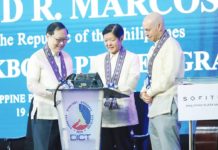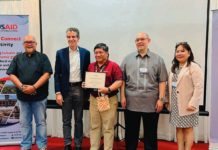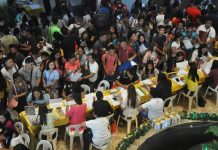[av_one_full first min_height=” vertical_alignment=” space=” custom_margin=” margin=’0px’ padding=’0px’ border=” border_color=” radius=’0px’ background_color=” src=” background_position=’top left’ background_repeat=’no-repeat’ animation=”]
[av_heading heading=’ASEAN’s youth dividend to boost growth, investments’ tag=’h3′ style=’blockquote modern-quote’ size=” subheading_active=’subheading_below’ subheading_size=’15’ padding=’10’ color=” custom_font=”][/av_heading]
[av_textblock size=’18’ font_color=” color=”]
MANILA – Association of Southeast Asian Nations (ASEAN) member states can reap the benefits of a youth dividend to boost growth and investments over the next few years.
Elaine Tan, Executive Director of ASEAN Foundation, said half of ASEAN population now aged below 25.
ASEAN, which includes the Philippines, is home to more than 600 million people.
“So there is a youth dividend in ASEAN and that is why, people outside of ASEAN, particularly investors, look at us very positively because we will gonna be, as you heard in statistics, the fourth to fifth largest economy in the world,” she said in an interview Thursday on the sidelines of Third ASEAN Foundation Model ASEAN Meeting (AFMAM).
Tan said such trend indicates that the middle class is also developing because of the peace dividends gained by the region.
Delia Albert, former secretary of the Department of Foreign Affairs (DFA) and Chairperson of the ASEAN Society, believed that the young of today, who are adept at technology, plays a significant role in realizing the goals of ASEAN.
“They are going to take over the next 50 years of ASEAN. I think, they will put in them the ‘we feeling’ in ASEAN very well. They have been very articulate. I think they will make a difference,” she said in an interview.
Albert also identified the peace dividend as the biggest achievement of ASEAN in its 50 years of existence.
“If you have peace in the region, if you are not fighting with your neighbors, then you can pay attention to the needs of your people, to the needs of the society and the community. If you are fighting like in other places, you are going to delay all the elements that will make progress in a country,” she added.
Meanwhile, 88 undergraduate students and university academic members selected from 30 different universities across ASEAN participated in the AFMAM in Manila from Sept. 25 to 30.
AFMAM is an interactive initiative to better understand the ASEAN decision-making processes and mechanisms by simulating major annual ASEAN Meetings to experience how ASEAN senior officials function at ASEAN meetings. (PNA)
[/av_textblock]
[/av_one_full]



